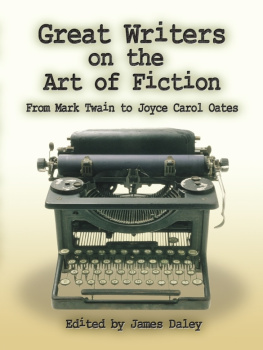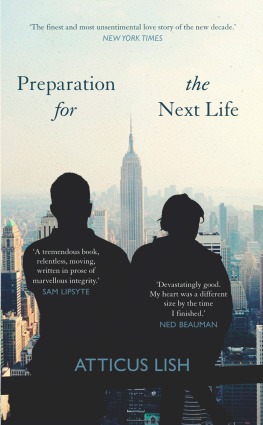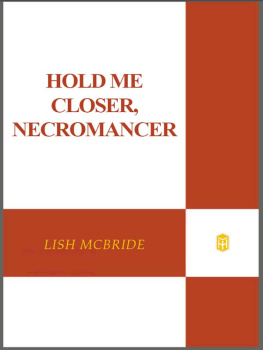Gordon Lish
Collected Fictions
TO JONN MEYER GREENBURG GREENE
FINE, FINE now heres a trope for you.
To fetch groceries, to collect rations, to supply the place with vittles, unless it be deemed better spelt victuals, I do not have to but indeed do choose to make my arthritic, rachitic grudge down a steep hill and thereafter to groan my way back up the steepness steeper still, what remains of my proprium all the while suffering ever more keenly the impudent yearage step by hideous step, whereas, please be so good as to be listening to me, I could just as well carry out my commerce among the aisles of a spankingly swell food-o-rama no more distant from my door and, mores the madness, reachable via a byway latitudinous to a fault.
But I go down, down, down, up, up, up.
You hear?
Now down, now up to and from where the grisly shelves are stocked with little in the line of the recognizable, to and from where the ether within is never not vicious with infection and disinfectant, to and from where the personnel (am I kidding? personnel, personnel?) would even on Easter sooner spit in your face than to face it in a faint-hearted experiment in decency.
Go know.
But look at me, look at me! I went and I went, dark purchases mounting against the load-bearing walls of my household trip upon ghastly trip.
So there for the nonce is the figure of the day, your author having hence satisfied himself of his having hinted at the amentia of what founded the variously deformed fundaments of the stories (am I kidding? stories, stories?) all arranged for you in the very sequence of their sequentiality ahead.
I, I, I was the maker of them.
Once.
Long ago.
When the literateurs swindle was no less the rage.
So now to quit now.
Ah, but curse, curse the volition! too much paid for the profit, too much told for the gain.
THE WIFE INSISTED she would tell her version first. I was instantly interested because of the word.
The husband stood by in readiness. Or perhaps his version still needed work.
She took a breath, grinned, and got right to the most alarming part first. At least to what she wished us and the husband? to regard as the part that had most alarmed her.
She said she waked to find a man in her bed. Not the husband, of course. The husband, she said, was next door, visiting with a friend. She said the husband often did this, spent the evening hours visiting, next door or somewhere else. At any rate, the wife said she did not scream because fear had made her speechless. She said that speechlessness was a common enough reaction, and to this the husband nodded in enthusiasm.
But she was able to get to her feet and run. She ran out the front door. She said she ran three blocks to a telephone booth and called the police.
"My God," I said. "That's terrifying."
"I know," she said, and smiled.
I took her smile to be a common enough reaction.
I said, "And you were so terrified that you ran away from the house with the man and your little boy still in it?"
"Isn't it amazing?" the wife said. "That's how scared you can get."
"You don't need to tell me," I said. "But just think."
"Oh," she said, "they're not interested in kids."
THE HUSBAND TOOK A BREATH, and then made his way into his version, not one word about which part was the worst.
He said he came in by the back door, exercising great care to quiet the key because it was, after all, late. He said he did likewise with the action of his tread. But then he saw the front door wide open and so he stepped swiftly to the little boy's room, and saw the little boy safe in his bed.
"You see?" the wife said.
I said, "Thank God."
"I went to our bedroom next," the husband said.
He said he saw the bed empty and the bathroom door closed.
"Good God," I said, "the rapist is in there!"
My wife said, "For goodness sake, let him tell it."
The husband said he went weak with shock. He said he understood it was useless to stand there exhorting himself to open the bathroom door. He said he was simply certain of it the wife would be in there, dead.
"Can you blame him?" the wife said.
The husband said, "So I sat down on the bed and called the police."
Then they both smiled.
"The rapist wasn't in there?" I said.
"Please," my wife said.
The husband said he could barely speak. He said the police kept urging him to speak up.
"My wife's missing!"
This is what the husband said he screamed into the telephone, but that the police said no, not to worry, that his missus was in a phone booth just blocks from the house.
"THAT'S AWFUL," my wife said.
I said, "But the bathroom."
The husband said, "I didn't touch that door until the police got there and when they did, of course inside it was empty, wasn't it?"
"Of course," I said. "Is there a window in there?"
The wife nodded.
"Open," the husband said, seeming satisfied.
"That's the way he got out," the wife efficiently added.
"The rapist," my wife said, in just as quick succession.
I'VE TOLD YOU EVERYTHING I know. I've told it to you precisely as it was revealed to me. But there is something in these events that I don't understand. I think there is something that those two people no, three aren't telling me. I sometimes think it must be staring me right in the face, just the way the three of them were when the story or my version of it was all finished.
I TELL YOU, I am no more a sucker for this thing of poetry than the next fellow is. I mean, I can take it or leave it a certain stewarded pressure, some modulated pissing and moaning, the practiced claims of a seasonal heart. But once in a blue moon I have in hand a poem whose small unfolding holds me to its period. It needn't be any great shakes, such a poem. I don't care two pins for what its quality is. Christ, no literature's not what I look to poetry for.
Fear is.
You know as in the fear of nothing there.
You keep your head on straight, there'll be this breeze you'll start to feel, a sort of dainty susurration of the words. That's when you can bet the poor sap's seen it coming at him an ordinary universe, the itemless clutter of an unmysterious world. First chance he gets, it's a whole new ball game, touching bases while he races home free, that little telltale wind on the page you're looking at as the gutless poet starts to work up speed.
Maybe I don't like poets or people. But I just love to catch some bardness at it, and then to test myself against the thinglessness that made him cut and run. What I do is I pick it up where the old versner's nerve dumped him, right there where he just couldn't stand to see where there's never going to be anything where something never was.
It's no big deal. You just face down what he, in his chickenheart, couldn't. Then you type your version up and sign your name to it. Next thing you do is get it printed as your own, sit back and listen to them call you the real thing when you weren't anything but bold.
It's the safest theft, a stolen poem and who, tell me, doesn't steal something? Besides, show me what a poet dares demand his right to. A public reading? Public subsidy? But certainly not a grand banality. Least of all the very one his cowardice dishonored! Forget it this is a person who is afraid.
WHAT BRINGS ME to these brusque disclosures is an experience of recent vintage, a poem I took over from some woman you'll never hear of, and that I have since passed off not without applause as my own.
Nothing to it.
Just you watch.
The text I mean the one that came before me situates us in a situation as follows: two women, the poet and a widow, the bereaved missus of the lover of the poet.











